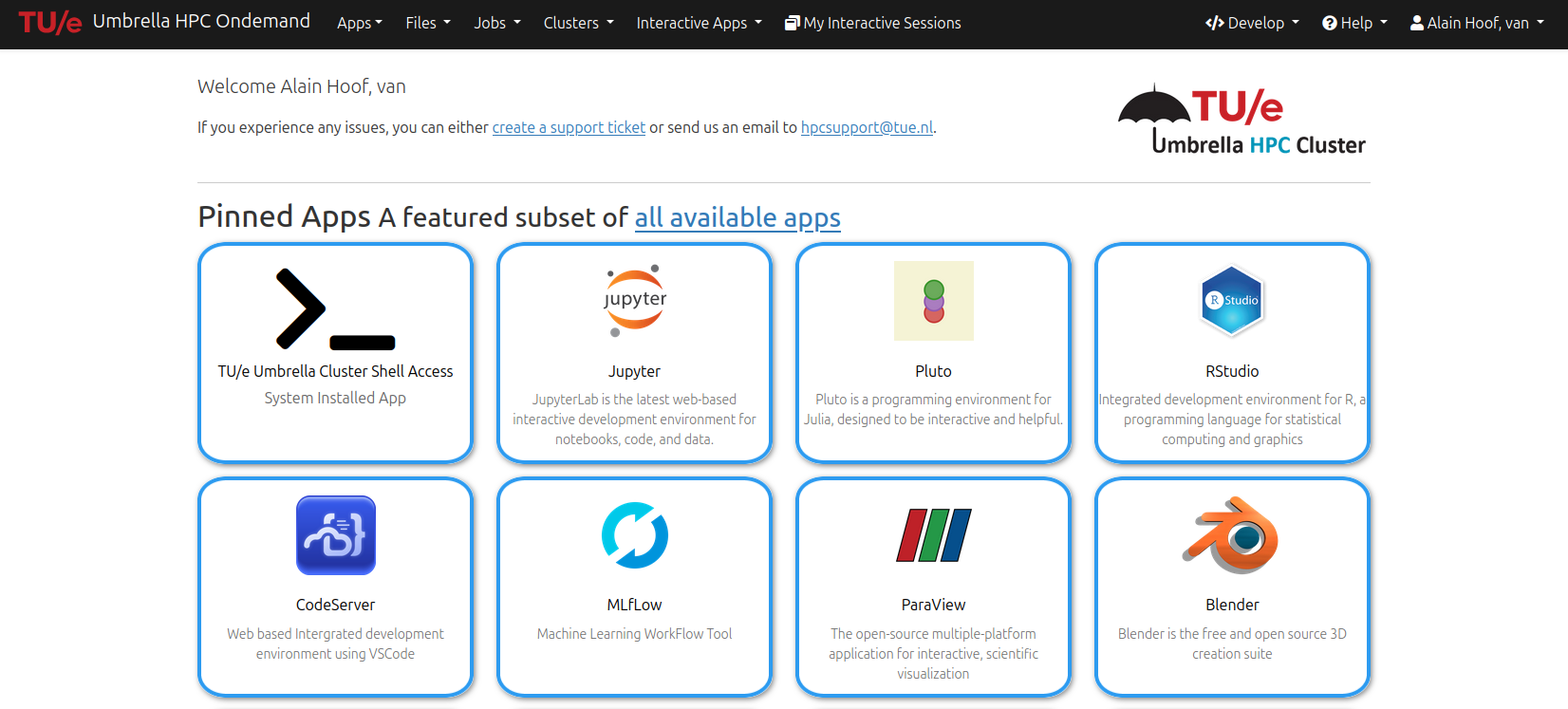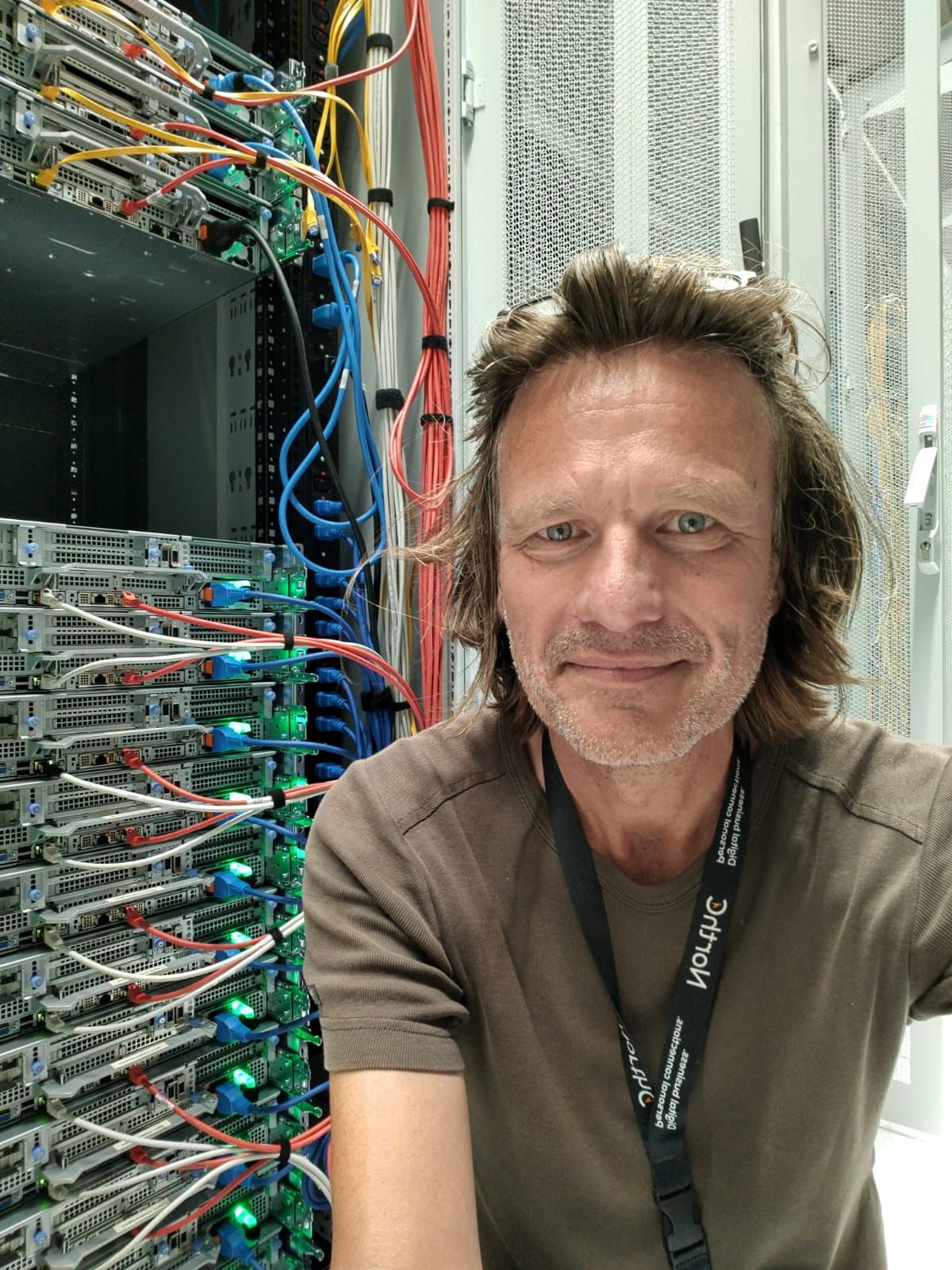At Eindhoven University of Technology (TU/e) in the Netherlands, high performance computing (HPC) is an integral part of discovery and innovation. From fluid dynamics and mechanical engineering to AI modeling and chemical simulations, researchers depend on powerful computing resources to accelerate their work. But for many, the steep learning curve of traditional command-line access stood in the way of getting started.
That changed when the TU/e Supercomputing Center introduced Open OnDemand, the Ohio Supercomputer Center’s open-source web portal that simplifies access to HPC systems through a familiar, browser-based interface. What began as an experiment quickly became a campus-wide success story.
“We were at the International Supercomputing Conference in Hamburg when we first saw Open OnDemand,” said Alain van Hoof, HPC consultant at the TU/e’s Supercomputing Center. “My colleague looked at it and said, ‘We need this—it’s so easy to get access to the cluster.’ When we came back, we installed it, and within weeks people started using it. We didn’t advertise it; it spread on its own.”

The timing was ideal. More researchers and students were turning to TU/e’s Supercomputing Center for support, but many struggled with traditional HPC access. The center’s team works with a growing ecosystem of resources—from local clusters to the Dutch national supercomputer—and saw firsthand how new users were intimidated by the command line.
“For technical users, SSH (also known as Secure Shell, a command-line tool that allows users to log into a remote computer over a network) is easy,” said Gérson Fernandes, HPC engineer at TU/e. “But for the bulk of people who don’t have that skill set, just being able to log in through a browser makes a world of difference.”
Through Open OnDemand, TU/e offers popular commercial software such as MATLAB (a programming and numeric computing platform), along with engineering tools like Ansys and COMSOL for multiphysics simulation—all available directly in the browser.
Users can easily upload and edit files, manage their data, and launch interactive applications like Jupyter notebooks and visualization tools — without installing software or dealing with complex remote desktop setups.
“It’s easy access for people who aren’t very HPC-savvy,” van Hoof said. “They can start applications in the browser, use more cores or memory than their laptop ever could, and they’re happy to do it.”
The portal has also transformed TU/e’s teaching and training efforts. Van Hoof and Fernandes co-lead the university’s HPC schools, which introduce beginners to supercomputing concepts twice a year. Before Open OnDemand, instructors would have spent a substantial amount of time troubleshooting SSH access on 30 to 40 laptops.
“Now we just say, ‘Go to this address and log in,’” Fernandes said. “It takes a minute at most. That alone has been a game changer.”
Open OnDemand’s intuitive design not only accelerates access but also sparks curiosity.

“For many, it’s the first step to the next step,” van Hoof said. “People who would never have asked about HPC now start asking how to run jobs from the command line. They begin to explore what’s possible.”
As adoption grew, TU/e became one of the first universities in the Netherlands to fully integrate Open OnDemand—and word spread quickly.
“We were one of the first to use it, and now everybody is,” van Hoof said. “It’s spread like wildfire. Other universities are implementing it too because it really adds something valuable to the supercomputing infrastructure.”
The team continues to expand and refine its Open OnDemand environment, recently adding single sign-on to streamline login through TU/e’s Microsoft credentials and exploring new ways to support classroom use.
Looking ahead, TU/e is also deepening its connection to the global Open OnDemand community. The university plans to host the first European version of the Global Open OnDemand (GOOD) Conference in summer 2026, bringing together like-minded HPC professionals to share ideas, challenges, and best practices from across Europe.
“We find real value in connecting people who face similar issues and can learn from one another,” Fernandes said. “Hosting GOOD Europe is an opportunity to strengthen that collaboration.”
For TU/e, Open OnDemand has not only simplified HPC access but reshaped the culture around it—transforming what was once an intimidating task into an accessible, empowering experience for every user and building new connections across the global research community.
Written by Lexi Biasi
The Ohio Supercomputer Center (OSC) addresses the rising computational demands of academic and industrial research communities by providing a robust shared infrastructure and proven expertise in advanced modeling, simulation and analysis. OSC empowers scientists with the services essential to making extraordinary discoveries and innovations, partners with businesses and industry to leverage computational science as a competitive force in the global knowledge economy and leads efforts to equip the workforce with the key technology skills required for 21st century jobs.